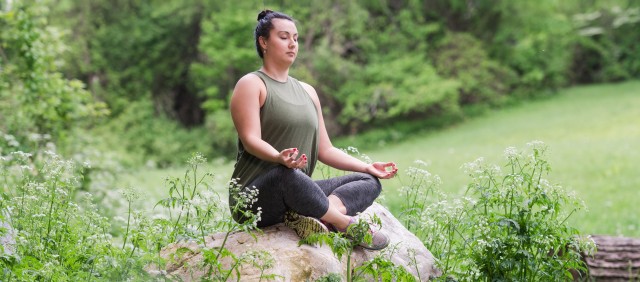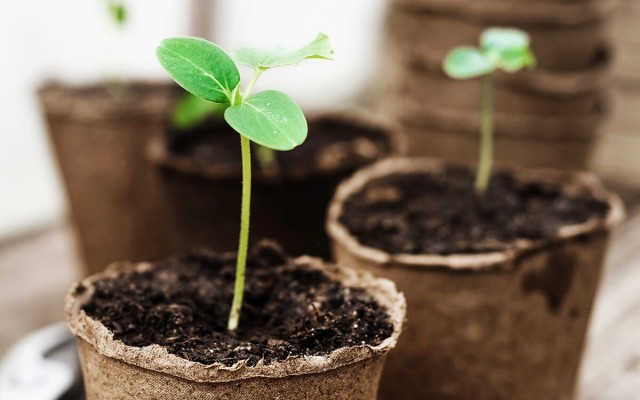The Power of Stopping in a Time of Pause

April 11, 2020
When have you ever spent this much time at home? I remember the last time I did: It was for eight months about seven years ago, while I was unemployed. Those were eight of the most challenging months of my life.
For many of us, this time of uncertainty creates tremendous anxiety, which we might react to with agitation and frustration, or with sadness and depression, or by creating a long to-do list and a Zoom-packed social schedule to keep our minds off everything. I’ve noticed that my to-do list of housework is growing—with all this time at home and extra daylight, I can tackle the interior painting in my house, organize all the dried beans I stocked up on, rake the leaves, build a compost bin, power-wash everything, paint the outside of the house when it gets warmer, cook and preserve food, etc., etc., etc. Yes! This list will keep me busy through months of solitude.
The addiction to busyness keeps our minds distracted; as the Buddha says, “Movement masks dukkha (suffering).” We change relationships, change jobs, buy more stuff, get another dog, run another marathon, join another committee. We are in a world of constant motion to avoid discomfort.
Yes, movement and momentum are natural—they keep this planet revolving around the sun, the snow falling from the sky, the songs filling the streets of Italy, and the texts of love and encouragement streaming to our phones. But how can we stop doing and start being?
First, we need to get comfortable with being uncomfortable. This has been my greatest lesson from meditation and from being human. Life brings both challenges and gifts, often coexisting in the same moment. I experience suffering when I want things to be different than they are, when I try to move away from the experience I’m having. Meditation has taught me to observe the thoughts that arise, allow them to dissipate, and then observe what appears next. This is the nature of the mind.
I am so grateful for the many years I’ve spent practicing Ayurveda and participating in silent meditation retreats—never would I have imagined that I would lean into them to navigate a pandemic. Here are four things I do every day to pause and find quiet.
Start the day with a seated meditation. Sometimes I sit for 10 minutes, sometimes 30. I like the Insight Timer app, which has a variety of bell tones you can choose from to begin and end the sit, as well as tons of guided meditations—my favorites are the ones for sleep. You can also visit Kripalu’s YouTube channel to find some beautiful guided meditations from our faculty.
Get outside and walk somewhere quiet. I take my dog out every morning, and while he’s sniffing around, I witness the sunrise over the Berkshire hills. Connecting with nature brings inner quiet with little effort on our part. Just listen to the birds, sense your feet on the earth, feel the wind on your skin, look at the sky. If you live in an urban space, consider placing your houseplants in one area of your home to create a little “forest” where you can breathe with them, exchanging oxygen and carbon dioxide. My at-home workspace is at the biggest window in my house, so I can look up and out at the old maple tree. Throughout the day, I gaze out the window for a few minutes to watch the rain, the birds, or simply the stillness of the air.
Have a silent meal. Silent Breakfast is one of Kripalu’s most beloved and longstanding traditions. You can try this practice at home, at any meal; if you live with others, invite them to try it, too. Make it a special by putting fresh flowers on the table, lighting a candle, and taking the time to savor each bite.
Turn off electronics and read a book, do a craft or puzzle (check out our Kripalu Activity Book), or play a game. A game isn’t silent, but it is time away from screens, which for me is always a relief. Get the kids involved; everyone in my family loves games and we’re all incredibly competitive. Sit together and read in silence, creating a shared space of quiet and focus.
Are you ready to listen to the constant chatter of your thoughts and the deep rumblings of your own heart and soul? In my experience, both show up in silence. Use this time to find that stillness and the peace that lies within it. I’ll be right alongside you, my friend.
Erin Casperson, Lead Kripalu Faculty and Director of the Kripalu School of Ayurveda, is passionate about sharing how the ancient practices of Ayurveda can be applied to modern-day living.
Full Bio and Programs
